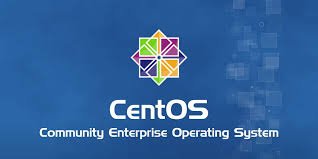Open the terminal and run the following command to install the EPEL repository
:$ yum install epel-release -y
Now, the next step is to install the yum-util tools by running:
$ yum install yum-utils
Execute the following command to resolve the RPM packages :
$ yum install rpmconf
$ rpmconf -a
Then, clear all packages that aren’t required:
$ package-cleanup --leaves
$ package-cleanup –orphans
CentOS uses dnf package manager as the default package manager. To install it, we use this command:
$ yum install dnf
Removing the yum package manager:
$ dnf -y remove yum yum-metadata-parser
$ rm -Rf /etc/yum
Upgrade CentOS 7 to CentOS 8 Using Package Manager
Upgrade the system with the dnf package manager:
$ dnf upgrade
Now, use the dnf to install the CentOS release package : $ dnf install http://mirror.centos.org/centos/8/BaseOS/x86_64/os/Packages/{centos-linux-repos-8-2.el8.noarch.rpm,centos-linux-release-8.4-1.2105.el8.noarch.rpm,centos-gpg-keys-8-2.el8.noarch.rpm}
Next, upgrade the installed EPEL repository:
$ dnf -y upgrade https://dl.fedoraproject.org/pub/epel/epel-release-latest-8.noarch.rpm
Remove all the temporary files:
$ dnf clean all
Removing the old kernel from CentOS 7: Then, remove the conflicting packages :
$ rpm -e `rpm -q kernel`
$ rpm -e --nodeps sysvinit-tools
Next , run the upgrade for CentOS 8:
$ dnf -y --releasever=8 --allowerasing --setopt=deltarpm=false distro-sync
Your system needs a kernel now, so install it executing this command:
$ dnf -y install kernel-core
Also, install CentOS minimal package:
$ dnf -y groupupdate \"Core\" \"Minimal Install\"
To confirm the current version, run this command :
$ cat /etc/redhat-release

